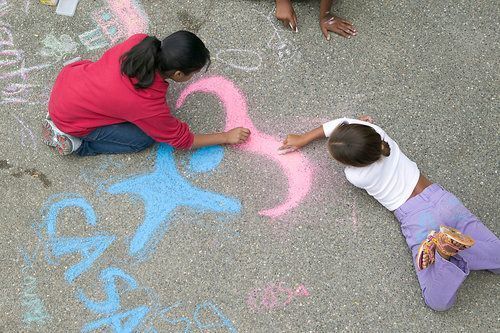-
What is a CASA volunteer?
A CASA (Court Appointed Special Advocate) is a trained citizen who is appointed by the Judge to advocate for the best interests of abused and neglected children in court.
-
What is a CASA volunteer's role?
CASA advocates provide the judge with carefully researched information about the child to help the court make a sound decision about that child’s future. They provide written reports to the court and follow through until that child reaches a safe, permanent home.
-
What are the requirements to be a CASA Volunteer?
Must be at least 21 years of age
Must be able to pass a background and reference check
Attend pre-service training classes -
How long will I be a volunteer?
As long as you have the desire to advocate for children, you can volunteer forever!
We ask that our volunteers commit to the lifespan of the case. -
What are the duties of a CASA Volunteer?
Interview all parties involved with a child whom the CASA Volunteer has been assigned
Record all findings as the investigation progresses
Attend Juvenile Court hearings involving the case
Attend the Department of Children's Services meetings involving the case
Prepare written reports with recommendations for all hearings
Monitor proceedings in other courts, which may have an impact on the child's case
Regularly confer with the CASA Staff -
How many cases do volunteers carry?
CASA volunteers typically carry one or two cases at a time.
-
How much time does it require?
Each case is different. A CASA volunteer usually spends about 10 hours doing research and conducting interviews prior to the first court appearance. More complicated cases take longer. Once initiated into the system, volunteers work about 5-10 hours a month.
-
How long does a CASA volunteer remain involved with a case?
The volunteer continues until the case is permanently resolved. One of the primary benefits of the CASA program is that, unlike other court principals who often rotate cases, the CASA volunteer is a consistent figure in the proceedings, and provides continuity for the child.
-
Can I be a volunteer if I work full-time and/or have children?
Yes! CASA is a great volunteer opportunity that provides for a flexible schedule. For Court and any meeting you cannot get off work for or have child care issues, the CASA staff will work with you and represent your recommendations.
-
What kind of training is required?
CASA advocates complete about 30 hours training course and a mandatory court observation.
All classes must be completed for a volunteer to graduate and be sworn in by the court as a CASA volunteer.
Each volunteer must also complete 12 hours of continuing education every year after his or her first year of service. -
How does a CASA volunteer investigate a case?
To prepare a recommendation, the CASA volunteer talks with the child, parents, family members, social workers, school officials, health providers and others who are knowledgeable about the child's history.
The CASA volunteer also reviews all records pertaining to the child -- school, medical and caseworker reports; and other documents. -
How does the role of a CASA volunteer differ from an attorney?
The CASA volunteer does not provide legal representation.
In the state of Tennessee, the legal representation is handled by an attorney, who is referred to as a Guardian ad Litem (GAL). However, the CASA volunteer does provide crucial background information that assists attorneys in presenting their cases.
It is important to remember that CASA volunteers do not simply represent the child's wishes; rather, they exercise their own independent judgment to determine what is actually in the best interest of the child. -
How does a CASA volunteer differ from a social service caseworker?
Social workers generally are employed by state governments. They sometimes work on as many as 30 cases at a time and frequently are unable to conduct a comprehensive investigation of each.
The CASA volunteer has more time and a smaller caseload (an average of 1-2 cases at a time). The CASA volunteer does not replace a social worker on a case; he or she is an independent appointee of the court.
The CASA volunteer can thoroughly examine a child's case, has knowledge of community resources, and can make a recommendation to the court independent of state agency restrictions. -
Is there a "typical" CASA volunteer?
CASA volunteers come from all walks of life, with a variety of educational and ethnic backgrounds.
There are more than 76,000 CASA volunteers nationally and more than 1,197 in the state of Tennessee.
Local programs vary in the number of volunteers they utilize.
Nationally, aside from their CASA volunteer responsibility, 50 percent of volunteers are employed in regular full-time jobs; the majority tend to be professionals. 82% of volunteers nationwide are women; 18% are men. -
What kind of person is a CASA volunteer?
CASA volunteers come from all walks of life.
Volunteers must be 21 or older, undergo a background check, provide references and take part in a personal interview.
Volunteer advocates are patient, open-minded people who have good communication skills, can maintain professionalism and objectivity, have a history of following through on commitments and a willingness to accept guidance.
Above all, they care about children.
search

